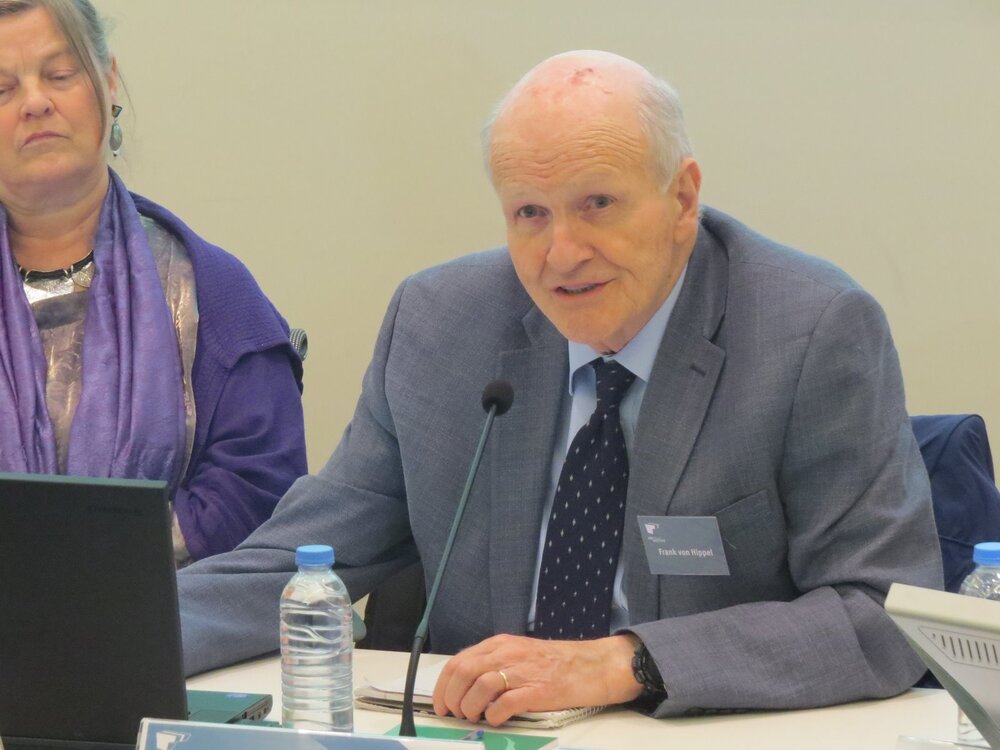A failure of Vienna talks unacceptable: ex-White House official

TEHRAN - Frank Von Hippel, who was responsible for national security issues in the White House Office of Science and Technology Policy from 1993 to 1994, warns that a failure of the Vienna talks is not acceptable.
”But a failure of the Raisi and Biden administrations to agree is not acceptable,” Hippel tells the Tehran Times.
Diplomats from Iran, the P4+1 group of countries -China, Russia, France, and the UK plus Germany, gathered at the Palais Coburg hotel in Vienna amid global fanfare. It means the resumption of the talks after a break of more than five months.
Ali Bagheri Kani, the deputy foreign minister of Iran, and Enrique Mora, EU deputy foreign policy chief, jointly chaired the Monday plenary session.
Western media outlets purposefully depicted the overall situation in Vienna as somber, even before the negotiators reconvened the much-awaited meeting. They warned of Iranian maximalist demands, broached the idea of an interim agreement, and accused Iran of not being serious.
But Hippel believes that the power struggle in Washington makes things more difficult.
“The Democrats and Republicans disagree on everything including the future of democracy in the United States,” the former White House official notes.
Following is the text of the interview:
Q: How do you assess the resumption of the Vienna talks? Are you optimistic about the results of the talks?
A: The negotiators appear to be struggling to keep things from falling apart. I am not optimistic but think the negotiations can be saved if both sides want to do so. The Biden administration does want to save the JCPOA but is constrained by past Congressional actions and the continuing division in Congress. Of course, I don’t understand the division of opinions in the Raisi Administration.
“Neither wants war. They must find a path forward!”Q: What solutions are on the table? Fully reviving the 2015 pact or a new agreement? What about “less for less”?
A: Due to the Raisi administration’s skepticism about the Biden administration’s ability to deliver true U.S. compliance on sanctions relief in exchange for Iran’s return to compliance and due to the pressure from Iran limiting the transparency of its centrifuge production and building an increasing stockpile of 60% enriched weapon-usable uranium, a step-by-step approach is being considered on the U.S. side.
Q: Do you think the "less for less" policy can help advance the talks in the future while some critics say this is a fruitless effort that only prolongs the negotiations?
A: Failure is not an acceptable option. It could too easily lead to war, perhaps initiated by an Israeli bombing attack on Iran’s enrichment-related facilities.
Q: How can Iran and the U.S. reach a common language? Is there any ground in this regard?
A: The failure thus far of the negotiations in Vienna may be contrasted with the apparent progress in Iran’s talks with Saudi Arabia. If Iran could agree with its Persian Gulf neighbors on mutual transparency and restrictions on their nuclear programs, this might reinforce the JCPOA. That is what brought an end to the nuclear arms race between Argentina and Brazil in the 1980s.
Q: How can domestic competitions in the U.S. ruin any chance for reaching a good nuclear pact?
A: The power struggle in Washington makes things more difficult. The Democrats and Republicans disagree on everything including the future of democracy in the United States.
But a failure of the Raisi and Biden administrations to agree is not acceptable. Neither wants war. They must find a path forward!
Leave a Comment